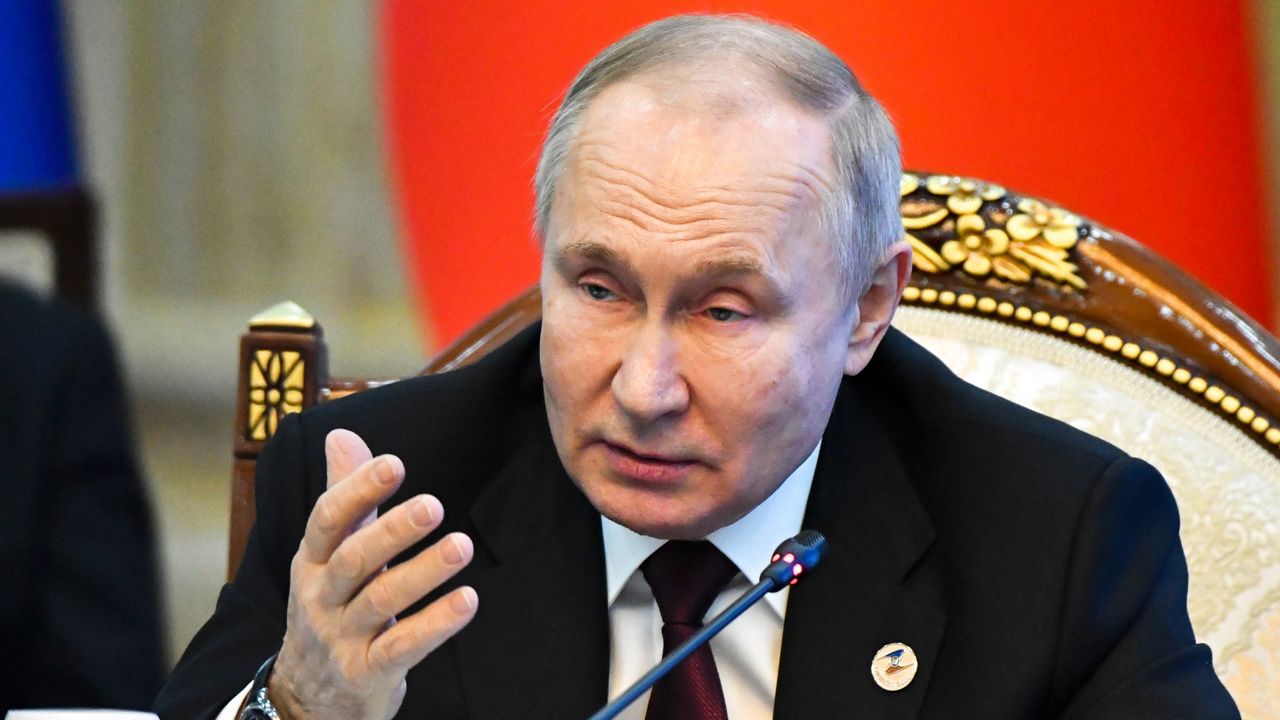President Joe Biden will sign an executive order on Friday authorizing the Treasury Department to implement new sanctions that would cut off financial institutions working with Russia from those operating in the U.S., according to a senior administration official.
“Our overall goal here is to put sand in the gears of Russia's supply chain, which we think is one of the most effective ways to slow Russia down,” the official said on a call previewing the announcement. “A number of the banks in third-party, third country jurisdictions that we have concerns with have relationships with U.S. and European banks that could be threatened if they don't take steps to prevent Russia from getting access to goods that are used for the military industrial complex.”
The official said that while Russia has the resources to wage their war in the short term, the sanctions are intended to inflict long-term pain that will see Russia’s economy weaken and industries falter.
The goal of the executive order is to force financial institutions outside of the jurisdictions of the U.S. and European governments to cut off ties with Russia in order to hamper the Kremlin’s ability to finance its war effort. If the financial institutions don’t, they will be forced to sacrifice large swaths of the global market, officials said.
“Those who are supplying goods or processing transactions that materially support Russia's military industrial base are complicit in Russia's brutal violation of Ukraine's sovereignty and territorial integrity,” another senior administration official said.
The sanctions are the latest of thousands the Biden administration has handed down since the Russian invasion of Ukraine early last year, largely targeting Russian officials and industries, as well as suppliers and collaborative companies abroad.
However, while the officials lauded the sanctions as a necessary step to disrupting Russia’s war effort, which has cost the country severely both materially and in human life, they said the Ukrainian people would not be able to continue repelling their invaders without more funding from Congress.
“That’s going to require Congress to act in terms of providing the Ukraine supplemental to give them the resources to continue to have the weapons to defend themselves and the money to make sure they support their economy,” the first official said.
President Joe Biden has asked Congress for a $106 billion package that would fund Ukrainian and Israeli war efforts in their respective conflicts, humanitarian aid for those countries as well as Palestinians in Gaza, military assets for allies in the Indo-Pacific and changes to border security and immigration policy on the U.S.-Mexico border. Progress has stalled in Congress and a deal won’t be reached until next year.
On Thursday, each party’s Senate leader said in a rare joint statement that negotiators were making progress on the deal and projected confidence the funding will come through. The Biden administration has said Ukraine will receive its last U.S. aid package this month if a deal is not reached.
"I am confident that the U.S. will not let us down,” Ukrainian President Volodmyr Zelenskyy said this week, after visiting the U.S. Capitol to make his appeal to lawmakers earlier this month.
Western sanctions are biting but not crippling the Russian economy. Russian forces are still dictating much of what happens on the battlefield, where its defensive lines feature minefields up to 12 miles deep that have largely held back Ukraine’s monthslong counteroffensive.
On Wednesday, the U.S. imposed new sanctions on companies based in the United Arab Emirates and Hong Kong for violating a price cap on Russian oil. Last year the United States, European Union, countries in the Group of Seven and Australia said they would enforce a $60 a barrel limit on what Russia could charge for its oil on the global market.
And last week, the Biden administration hit hundreds of people and firms, from Russia to China to Turkey and the United Arab Emirates, with economic and diplomatic sanctions for their participation in a multinational weapons dealing network.
“The American people can be and should be incredibly proud of the part they played in supporting Ukraine’s success,” Biden said at a press conference alongside Zelenskyy during his Washington visit earlier this month. “[Russian President Vladimir] Putin is banking on the United States failing to deliver for Ukraine. We must, we must, we must prove him wrong.”



